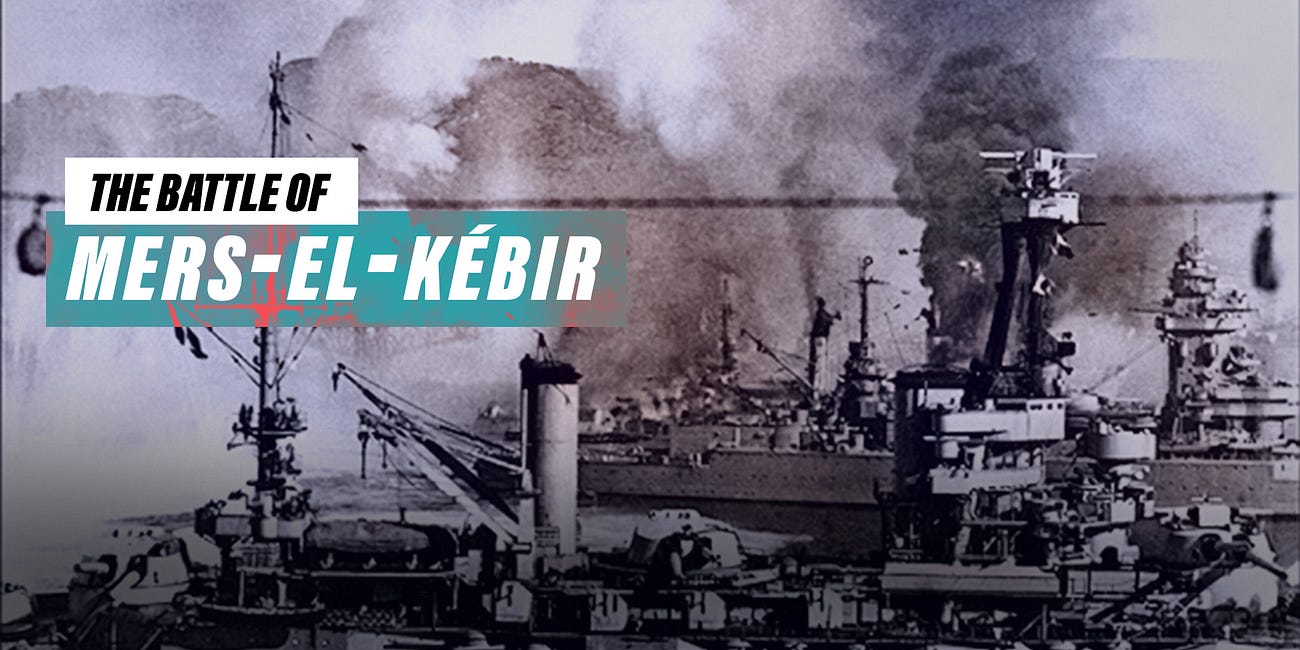This has now been made into a video:
When Britain Betrayed France
The French government signed an armistice with Germany in mid-1940, which was effective from June 22nd onward, following the fall of France. This would, as the French hoped, put an end to the regional conflict in France and restore a measure of security. England, which had by this time withdrawn from mainland Europe, was not pleased with this decision. …
The French government signed an armistice with Germany in mid-1940, which was effective from June 22nd onward, following the fall of France. This would, as the French hoped, put an end to the regional conflict in France and restore a measure of security. England, which had by this time withdrawn from mainland Europe, was not pleased with this decision. Churchill, in particular, was incensed by France's decision. They were now a neutral nation, situated between England and Germany.
Churchill called on parliamentarians to condemn France on numerous occasions for its unwillingness to fight to the death, which he regarded as a betrayal of England. By July 1940, Churchill had made the decision to begin military operations against neutral France - against the same troops they had just weeks earlier been fighting alongside in Europe.
The French Navy was the principal objective for Churchill. At that time, the majority of the French navy was operating in French North Africa or in the vicinity of Toulon, while the remaining ships were located in the French colonies of the Caribbean or in close proximity to Egypt. Churchill and his advisors maintained that the French navy was a threat, despite its neutrality. Churchill believed that the Germans may capture the ships and use them against England, and this was the rhetoric he would use to justify operations against them.
However, the fact was that neither the Germans nor the Italians possessed technology that was suitable for use on French ships. Numerous incompatibilities existed. Furthermore, Germany and Italy believed that any attempt to seize these French ships would result in mutiny or the crews fleeing to England with the ships. Consequently, the notion that the Axis powers were preparing to commandeer these vessels was entirely unfounded.
On June 27, Britain made one more attempt to compel the French to violate their neutrality and use their Navy to fight in the Mediterranean before deciding to engage in military action. However, the British were unsuccessful. Admiral Francois Darlan, the commander of the French Navy, had assured the British that they would not allow their ships to be captured by any other nation and that the French would not launch an attack on the British.
Nevertheless, with military approval Churchill moved towards what would become known as Operation Catapult. The objective was the surprise attack and destruction of the neutral French Navy. Even though Toulon was extensively fortified from the land, North Africa had more minimal defenses around its ports which held some of the most powerful French ships.
Keep reading with a 7-day free trial
Subscribe to Notes From The Past to keep reading this post and get 7 days of free access to the full post archives.





